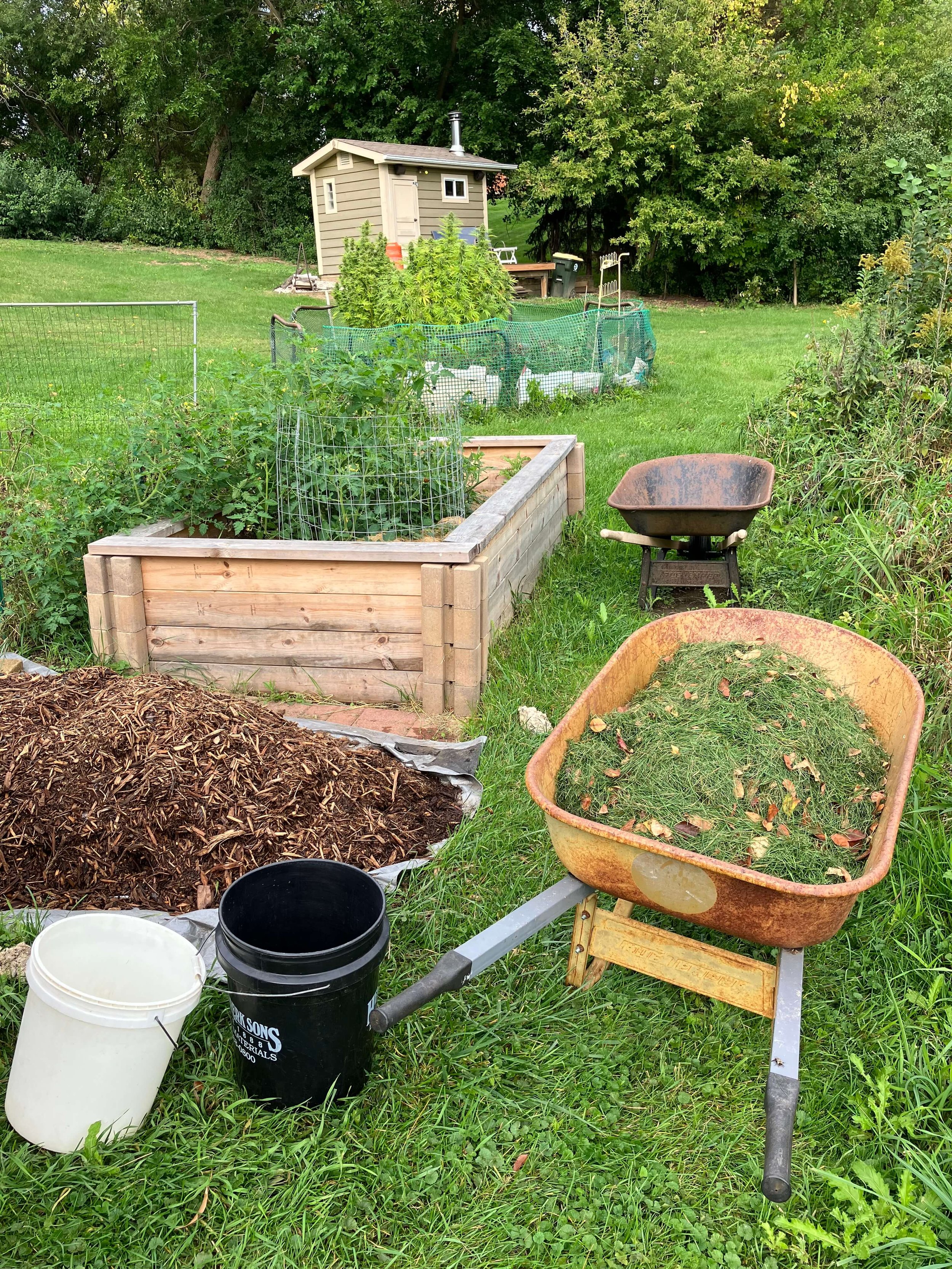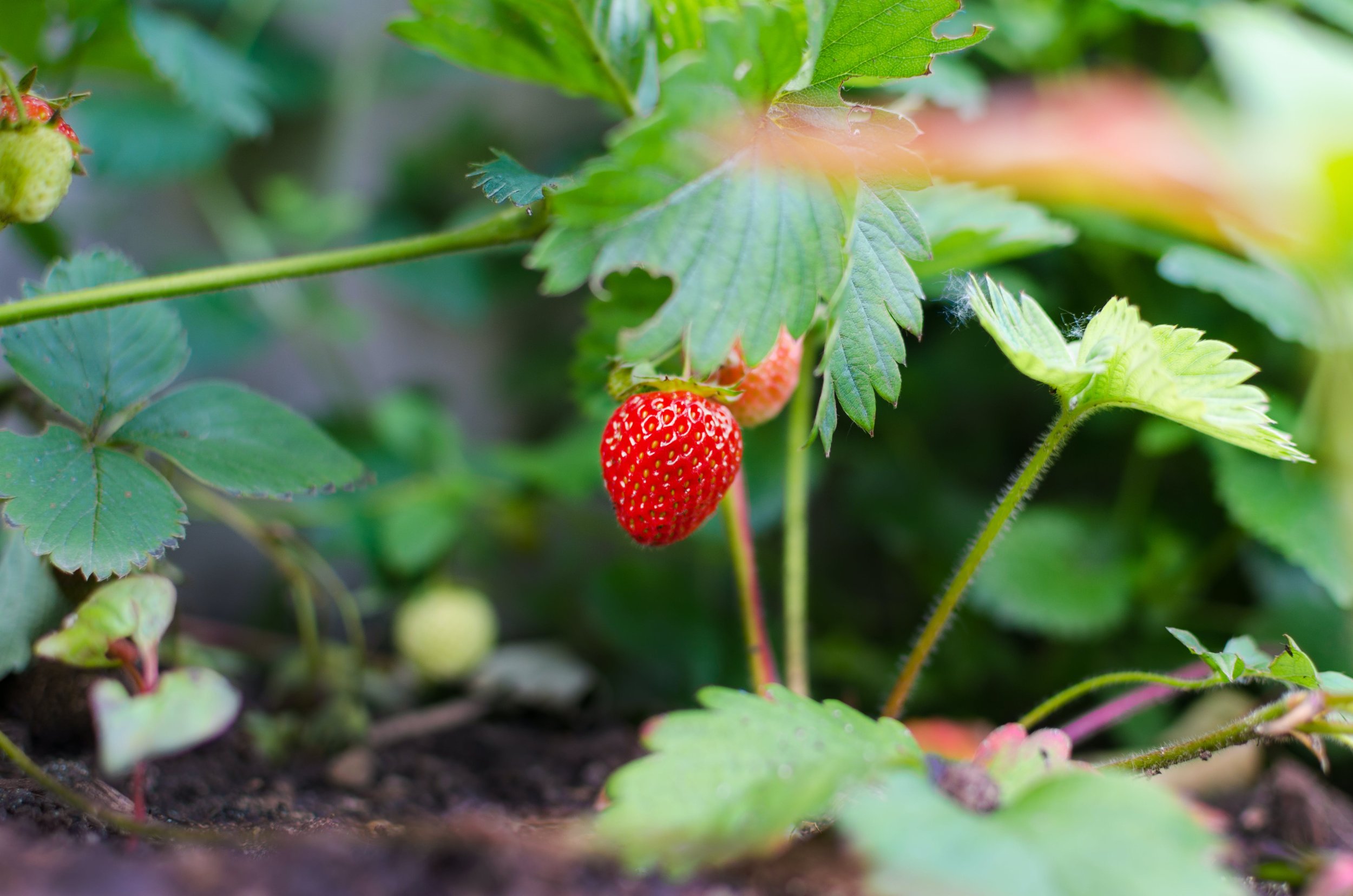
Garden Soil Health Consulting in Saint Charles
Let food once again be thy medicine, and medicine be thy food.
Our compost consultations focus on putting biology back into the soil so plants can become nutrient-dense, full of flavor, and a powerful ally on your road to achieving greater health and healing.
If you enjoy eating flavorful food you are well on your way to understanding what makes up good soil!
What makes plants nutrient dense and flavorful?
All the nutrients we need are locked away in the sand, silt and clay particles that make up dirt. But plants cannot access these nutrients without the help of bacteria and fungi. When we add biology (bacteria and fungi) to dirt, it then becomes living soil. The bacteria and fungus can digest the sand, silt or clay particles and poop out bioavailable forms of nutrients that the plant can absorb. The plant absorbs these nutrients whether they are magnesium, potassium, iron, iodine, phosphorus, etc., and in exchange secretes glucose which feeds the bacteria and fungus. It is a symbiotic relationship. It is these nutrients that provide our plants with flavor, so essentially, when you taste a delicious strawberry what you are enjoying about the strawberry is its high nutrient density.
In order to heal the body through diet alone the food you eat must be flavorful because only then are you consuming nutrient dense foods and in order for the food to have flavor we must have the biology in the soil.

Quantitative Soil or Compost Assessment
Are you curious about what your baseline biology is inside your soil or compost? Let us run the numbers!
All plants have a successional growing zone in which they thrive.
Vegetables, flowers, native grasses, fruit trees, vineyards, scrubs, evergreens and deciduous trees, all have a different successional growing zone. Each zone is determined by the fungal to bacterial ratio present in the soil. Our quantitative assessment will determine the fungal to bacterial ratio that is present in your soil so you know what the baseline biology is that you are working with.
Our quantitative assessments will also give you an estimate on the biomass or numbers of protozoa, and nematodes also present in your soil sample. If we spot possible issues, like dormancy of biology, anaerobic conditions and root-feeding nematodes we will warn you about them.
Tell us what you are trying to grow and we will include the recommended soil microbe numbers for the successional growing zone you are trying to achieve. Therefore you will know where you are and where you need to get to for optimal plant growth, health and nutrient density.
We can also test compost and worm castings so before purchasing a larger amount of soil amendments send us a sample to make sure the biology you are hoping for is active and alive.
Get started!
Email us at info@fromscratchwellness.com for instructions on how to collect and send your sample for a quantitative assessment.
Value of the quantitative assessment is $125.
Before you buy your next bag of soil or compost…
Let’s check the biology and make sure it will work for you!
Bacteria and fungi need oxygen to stay alive. Avoid purchasing compost or potting soil sold in a plastic bag. Plastic bags cause the biology to run out of oxygen causing them to go into their dormant (cyst) stage. Once the biology goes into its dormant cyst stage there is no telling when it will reawaken so it is not counted in our assessments. We only count active living biology.
I have tested over 20 different brands of bagged compost, potting soil, and worm castings under the microscope and found the same disappointing results in all of them. Regardless of what the marketing says on the bag, the majority of the biology in the soil product is in a dormant stage by the time it gets to the consumer.
In hopes of saving you time and money, purchase soil amendments from bulk compost and soil providers where the compost is kept outdoors and transported by truck or open-air containers and dumped on site. If you purchase compost, potting soils, and worm castings in bags they need to be made from breathable material so the biology can stay aerobic.
Composting Workshops!
Many hands make work light. Check out our events calendar for our thermophilic composting workshops series. Observe a quantitative soil analysis and meet the bugs in our soil, learn what ingredients make up a biological compost recipe, mix and build a thermophilic compost pile, learn the fundamentals of taking moisture checks, monitoring temperature, turning a pile, cooling & maturing a compost pile. Everything you need to know to build and maintain a successful biologically complete compost pile. Also, an introduction to vermicomposting & how to care for a worm bin.



